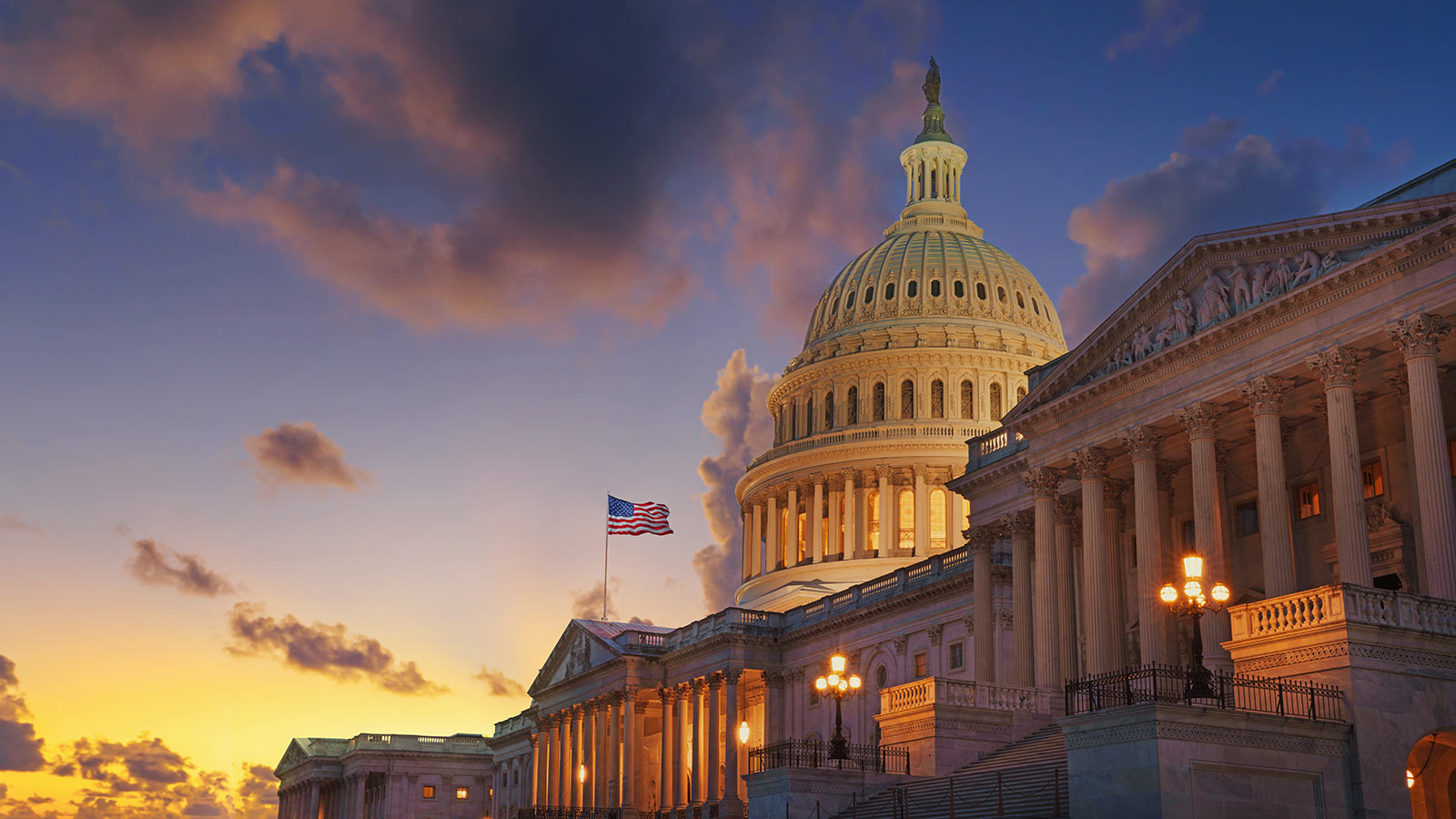One Bill, Big Impact: What You Need to Know About the New Tax Law
Never miss a thing.
Sign up to receive our Tax News Brief newsletter.

Key Tax Provisions in The One Big Beautiful Bill Act
On July 4, President Trump signed into law the One Big Beautiful Bill Act (OBBBA), which makes many of the provisions permanent under the Tax Cuts and Jobs Act (TCJA) that were slated to expire at the end of 2025. The OBBBA also provides for several other tax priorities on which President Trump campaigned, including deductions for tip income and overtime pay.
Key Provisions: Individuals
Some of the provisions that will have the most wide-reaching impact on individual taxpayers include:
- Tax rates and brackets created under the TCJA are made permanent. Additional inflation adjustments will be made to all but the 37% bracket.
- The increased standard deduction is made permanent. For 2025, the standard deduction will be $15,750 for single filers, $23,625 for heads of household and $31,500 for joint filers. The standard deduction will be indexed for inflation going forward.
- The nonrefundable child tax credit is increased to $2,200 per child beginning in 2025 and is indexed for inflation going forward. The nonrefundable $500 dependent credit for each dependent of a taxpayer other than a qualifying child is made permanent. The law also makes permanent the increased phaseout thresholds.
- The bill maintains the 20% qualified business income (QBI) deduction and expands the deduction phase-in range for specified service trades and businesses (SSTBs) from $50,000 to $75,000 for nonjoint filers and from $100,000 to $150,000 for joint filers. The bill also provides for a minimum $400 (adjusted for inflation) deduction for all taxpayers with at least $1,000 of QBI from activities in which they materially participate.
- The bill increases the deduction for state and local taxes (SALT) limit to $40,000, adjusted for inflation. The deduction begins to phase down (but not below $10,000) for taxpayers with modified adjusted gross income (MAGI) over $500,000. The higher deduction is temporary and will revert to the current $10,000 level beginning in 2030. The bill maintains the various workarounds taxpayers are using, including the state passthrough entity tax, to avoid the SALT cap.
- The bill permanently increases the individual alternative minimum tax (AMT) exemption amounts and reverts the phaseout thresholds to their 2018 levels. The bill increases the phaseout of the exemption from 25% to 50% of the amount by which a taxpayer’s alternative minimum taxable income exceeds the threshold.
- The bill allows for a deduction for car loan interest on qualified vehicle loans for years 2025 through 2028. The deduction is capped at $10,000 and phases out for taxpayers with MAGI over $100,000 and $200,000 for joint filers.
- The bill offers two significant changes for charitable contributions. The first change is a deduction for contributions for taxpayers who do not itemize. Taxpayers can claim a $1,000 deduction ($2,000 for joint filers) for certain charitable contributions. For taxpayers who itemize, the bill imposes a 0.5% floor for charitable contribution deductions. Only the amount of charitable contributions exceeding 0.5% of the taxpayer’s MAGI will be deductible.
- The bill permanently extends the excess business loss limitation for noncorporate taxpayers. The language in the Senate Finance Committee version of the bill which would have treated carried over excess business losses as excess business losses subject to Section 461(l) was removed from the final bill. Accordingly, carried over excess business losses are treated as net operating losses, which are not subject to Section 461(l).
- The bill permanently increases the estate tax exemption, lifetime gift exemption and generation skipping transfer exemption to $15 million beginning in 2026. The exemption amount will be indexed for inflation thereafter.
Key Provisions: Businesses
Among the provisions that will have the most wide-reaching impact on business taxpayers include:
- The bill makes 100% bonus depreciation permanent for assets acquired and placed in service after January 19, 2025.
- The bill allows a 100% deduction for qualified production property, generally defined as nonresidential real property used in manufacturing.
- The bill increases the advanced manufacturing investment credit rate from 25% to 35%, effective for property placed in service after December 31, 2025.
- The bill increases the Section 179 deduction to $2.5 million, reduced by the amount by which the cost of qualified property exceeds $4 million.
- The bill changes the definition of adjusted taxable income for purposes of the Section 163(j) business interest limitation by eliminating the deduction for depreciation, amortization and depletion from the calculation.
- The bill allows an immediate deduction for domestic research and development expenses paid or incurred after December 31, 2024. There are also provisions to deduct any capitalized expenses over one to two years.
- The bill makes opportunity zones permanent and narrows the definition of low-income community. This change is effective January 1, 2027.
- The bill allows certain residential construction contracts entered into after the date of the bill’s enactment to be accounted for using the completed contract method.
- The bill increases the exclusion for gain from qualified small business stock (QSBS). For QSBS acquired after the date of enactment and held at least three years, the exclusion is 50%. If held for four years, the exclusion is 75%. If QSBS is held at least five years, the exclusion increases to 100%. The bill also increased the applicable dollar limit to $15 million and the aggregate assets test to $75 million for issuances after bill enactment.
Considerations
These highlights reflect key elements within the bill that are expected to have the greatest impact on our clients.
Contact us if you have questions about how the One Big Beautiful Bill Act will affect you or your business. We are here to help.
©2025
The One Big Beautiful Bill Act Webinar Series
The tax landscape has shifted with The One Big Beautiful Bill Act and with new legislation comes changes to individual and business provisions as well as credits and incentives available to business owners.
Listen to our five session on-demand webinar series highlighting key elements in The One Big Beautiful Bill Act and what it means for planning ahead.
- Business Provisions in The Big Beautiful Bill
- Deep Dive: R&D Credits and Fixed Assets
- Deep Dive: Energy Credits
- Individual & Estate Provisions in The Big Beautiful Bill
- Deep Dive: State and Local Taxes





